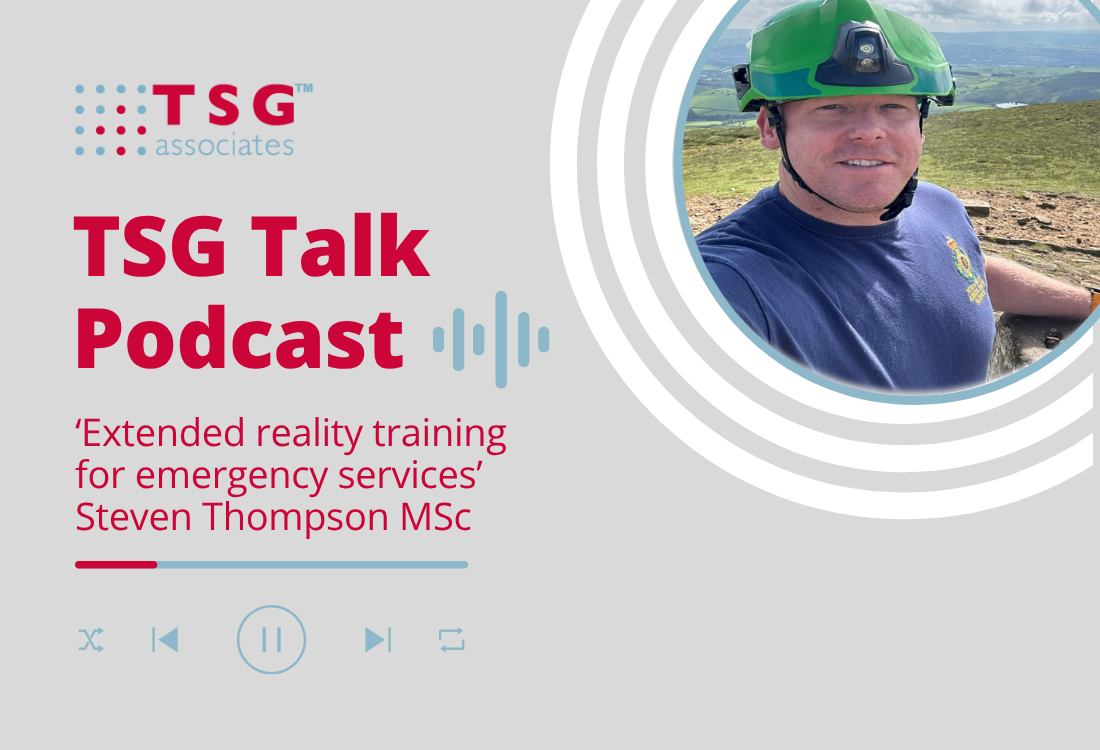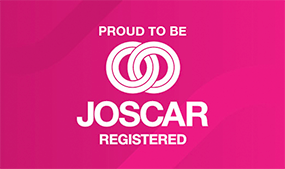
06/05/2025
TSG Talk- Reality training for emergency services
In this episode, Senior Partner Colin Smart had an enlightening conversation with Stephen Thompson, an area response team paramedic in Manchester for the Northwest Ambulance Service. They delved into the transformative potential of technology, with a particular focus on virtual reality (VR), in enhancing training accessibility and quality.
Stephen shared his experiences and perspectives on how VR can simulate real-life emergency scenarios, providing paramedics with immersive, hands-on training without the risks associated with live practice. This technology allows for repeated practice of critical skills, ensuring that paramedics are well-prepared for various situations. Additionally, VR training can be tailored to individual learning needs, making it a versatile tool for continuous professional development.
Stephen’s background
Stephen began by sharing his impressive background. He joined the Army at the age of 16, becoming a part of the Royal Engineers. His journey took him to an Explosive Ordnance Disposal (EOD) unit within the Commando troops, where he completed tours in various global hotspots, including Kosovo and Afghanistan.
After five years of service, Stephen talked about pivoting to a career in emergency medical services. He then qualified as a paramedic and joined the Hazardous Area Response Team (HART). During this time, he also pursued a Master's degree in Emergency Medicine and Resuscitation, graduating with distinction. His diverse experiences and advanced education have equipped him with a unique skill set, making him a valuable asset in the field of emergency response.
The benefits of reality training
He then explained how virtual training can be a powerful resource for helping people prepare and practice responding to complex scenarios. However, it does not replace traditional preparation methods; it needs to be used as part of a broader blended training approach, which can support learning and understanding a variety of critical skills, such as preparing for an MCI.
These critical skills include:
- Understanding your role in a major incident and initial scene management.
- Application of a triage flow chart.
- Wound packing, using both theory and practical techniques.
- Sending a situation report.
Stephen then stated that to get the full benefits from virtual training, students must first be taught existing traditional methods. Virtual training allows students to apply learned skills within a controlled environment and to apply varied levels of pressure. Any development of training methods should have a level of evidence behind it to validate its effectiveness.
His next point was that planning, implementing and evaluating significant exercises to test colleagues' responses to multiple casualties are important but also significantly time and budget-intensive. Virtual reality options can enhance the training portfolio, ensuring any large-scale incident is attended to with colleagues correctly prepared. A major benefit of using virtual reality is its ability to produce data and determine what is and is not working. This will then address any consistent deficit in skills or knowledge.
React XR and the importance of research
Stephen talked about recently establishing a new company called React XR, which will focus on integrating virtual reality and other extended reality technologies into various training programs. Its initial focus will be on mass casualty triage, leveraging VR to enhance training effectiveness and preparedness. He expressed his anticipation for the imminent deployment of his solutions to an oil and gas company. He explained that this period has been busy, filled with demonstrations, events, and other activities to showcase their innovations.
Click here to view React XR
He then discussed a research paper he wrote, which explained that virtual reality (VR) has emerged as a groundbreaking tool in the training of health professionals, offering immersive and interactive experiences. His study explores the potential of VR to revolutionise the training of hazardous area response teams (HART) in mass casualty incident (MCI) triage. By integrating VR into their training programs, he aimed to determine whether it could enhance the overall effectiveness of HART triage training and boost the confidence and preparedness of practitioners in real-life MCI scenarios.
Steven Thompson, Mass casualty triage: using virtual reality in hazardous area response teams training, Journal of Paramedic Practice, October 2, 2023. Read it here
If you had to select one piece of medical equipment to have with you regardless of task, what would it be?
When asked about his essential medical equipment, Stephen chose the tourniquet. He emphasised its importance, explaining that he never leaves home without it. He spoke about how a tourniquet is small and easy to carry, but has a big effect on casualties. Furthermore, he explained how he had used it multiple times while abroad, highlighting its role in saving lives during emergencies. When dealing with severe bleeding, the tourniquet is a vital tool in Stephen's medical kit, underscoring its value wherever he is.
What advice would you give our listeners?
Stephen explained why he is a huge advocate for consistently training in the basics and doing them well. He believes training should start in schools, preparing kids for the workplace with essential skills like Basic Life Support (BLS) and Stop the Bleed training.
He spoke about how, if we begin this education at a young age, everyone will be well-trained in these critical areas in a few generations and that in medicine, we never stop learning. He described that he still experiences imposter syndrome and constantly reminds himself that it's okay not to know everything. But he is always learning and never afraid to ask questions, and you have to stay humble and be open to new knowledge.
CPD accreditation
We're thrilled to partner with Ambulance CPD to offer the TSG Talk Podcast series on their website. Ambulance professionals can now stream high-quality content and earn CPD certificates. Visit Ambulance CPD's website to explore and enhance your professional growth.
What next?
Click here to listen to the full TSG Talk episode featuring Stephen Thompson, to find out more about life-saving solutions, please call TSG Associates on 01422 557841 or email us at info@tsgassociates.




%202.png)







